Annual Report SWI swissinfo.ch 2020
Dear friends of SWI swissinfo.ch, dear interested parties abroad, dear Swiss Abroad,
You are about to read the SWI swissinfo.ch Annual Report 2020. Rest assured, together we were able to achieve a great deal with SWI swissinfo.ch in 2020 despite great adversity. We also undertook, mid-pandemic, the comprehensive relaunch of our website with a new look.
+++ “We will come through this together” +++ UN Secretary-General António Guterres’s appeal from Geneva was a headline on SWI swissinfo.ch on March 19, about three weeks after the first reported Covid-19 infection, in Ticino. We didn’t know what lay ahead of us. In the multicultural world of the Swiss Broadcasting Corporation’s international service, this appeal showed the importance of our reporting for audiences worldwide: during the pandemic SWI swissinfo.ch’s articles have been in greater demand than ever. In the first wave in March, Covid-19 content recorded more than eight million web visits. SWI swissinfo.ch’s ten languages recorded an average of 2.1 million unique clients and 5.5 million web visits every month in 2020. Given the circumstances, all teams performed exceptionally under difficult conditions.
But read for yourself +++ Our experience working from home in Switzerland +++
+++ Working from home across Switzerland +++ This was the headline of SWI swissinfo.ch, referring to its own staff, on April 15. Journalism and teleworking – do they go together? The pandemic has had a fundamental impact on collaboration within SWI swissinfo.ch, with lasting consequences. The most radical change has been the sudden decentralised approach to work – in virtual teams from all corners of Switzerland. From a purely technical point of view the transition was unproblematic, but journalism also thrives on the “real” exchanges between editorial departments. To what extent does teleworking influence journalistic quality? That’s a question that concerns us a great deal, also with a view to the coming years.
+++ “The virus knows no national borders” +++ This SWI swissinfo.ch article (in German, French and Italian) was published as dramatic pictures from Italian hospitals surfaced. The article examined the lives of Swiss citizens in Italy. What was their situation like? The same as in Switzerland? These were the questions on the minds of the Swiss Abroad in 2020. SWI swissinfo.ch had its finger on the pulse – as the platform on which this exchange took place, since entry bans and quarantine regulations affected the so-called Fifth Switzerland in particular.
+++ Swiss expats given emergency Covid-19 aid +++ Covid bankruptcies: Swiss liquidators ramp up hiring +++ It became increasingly clear that the pandemic was an existential issue for many people. +++ ‘Switzerland is going to face an unimaginable level of poverty’ +++ Covid-hit restaurants call for ‘compensation now’ +++
Our mailbox was suddenly full of worried readers’ questions and concerns, and we responded by launching a conversation with Swiss expats with a live video chat. The topic: “Return to Switzerland?” It was the first of several video roundtables where we brought together members of the Swiss Abroad and experts from Switzerland – a new format that strengthens our connection to this community.
+++ “A new form of journalism to spark your curiosity” +++ Crises necessitate adaptation and innovation. Not only did we completely relaunch our website in 2020, but the management of SWI swissinfo.ch decided on a new approach to interaction with our users. Convinced that a dialogue with users should be constructive, our journalists are now putting questions to readers about issues covered in our stories to encourage debate. +++ Changes at SWI: We want to hear about your expertise and experiences +++

As the SBC’s international service, SWI swissinfo.ch is presented with both opportunities and challenges. How do we reach audiences with content that matters in a very crowded and noisy online world, and how do we convince these same audiences that we are a trustworthy source of news and information?
+++ Ten public service broadcasters join EBU initiative to give audiences access to trusted news from across EuropeExternal link +++ In 2020, SWI swissinfo.ch became one of the first movers of an initiative of the European Broadcasting Union (EBU) that will enable public service media (PSM) to share news content. Starting in July 2021, a selection of our top stories will be presented to broader European audiences, thanks to the involvement of PSM in Germany, France and Italy, as well as Finland, Spain, Portugal, Belgium and Ireland.
+++ Rewarding trustworthy journalismExternal link +++ To win the trust of audiences in an age of rampant misinformation in Europe and beyond, we took additional steps in 2020 to showcase the high standards of journalism to which we adhere. We made our editorial guidelines accessible to the public as well as details about our management and supervisory bodies, funding and independence. In so doing, we aligned SWI swissinfo.ch with the Journalism Trust Initiative. The JTI sets benchmarks for quality and independence and demands that these benchmarks are verifiable.
+++ Genève Vision, a new point of viewExternal link +++ (in French) There is arguably no other city as international as Geneva – the seat of hundreds of international organisations including the United Nations European headquarters, NGOs, research institutes and diplomatic missions. In 2020, SWI swissinfo.ch covered the big stories – whether the World Health Organization’s role in managing the Covid-19 pandemic or the UN’s 75th anniversary – in close collaboration with the Swiss Broadcasting Corporation’s French-language domestic service, RTS, as part of the new Genève Vision media hub.
Thanks to Genève Vision, and a partnership with the Graduate Institute Geneva, we established the Inside Geneva podcast as a platform to give voice to experts and analysts speaking on the most urgent global issues.
In step with Geneva’s international importance, our Geneva bureau became more diverse in 2020. We now report from Geneva in English, French, Arabic and Japanese, but our true strength is seeing and making sense of important developments through different cultural lenses.
SWI swissinfo.ch has increased its focus not only on International Geneva, but also on the topics of direct democracy, science, foreign policy and multinational companies. In line with our new SWI swissinfo.ch 2021-2022 strategy, we have continued to build specialist expertise. The Editorial Board concluded the year developing and implementing the new editorial strategy to reinforce the focus on the added value of multilingualism, international perspective with a view to Switzerland, and intercultural debate. These three strategic thrusts strengthen the distinctive character of SWI swissinfo.ch’s offering and its recognition as a media outlet with an international focus.
But the year was also special for another reason. We welcomed some 15 new members of staff and two new members of the SWI swissinfo.ch executive board: Maryline Cerf, head of Human Resources, and Ladina Luppi da Silva, head of Marketing and Partnerships. Our sincere thanks go to all our new colleagues for their dedicated start in their “Home Office”!

+++ Swiss issues moved the world (in German) +++ Swiss issues moved the world and continue to move the world. Covering issues of relevance for our diverse international audiences is a daily challenge for all of us at SWI swissinfo.ch and one that we gladly accept. We are a trusted and independent source of news and information from Switzerland, in normal and extraordinary times such as these.
Larissa M. Bieler, Editor-in-Chief and Director SWI swissinfo.ch
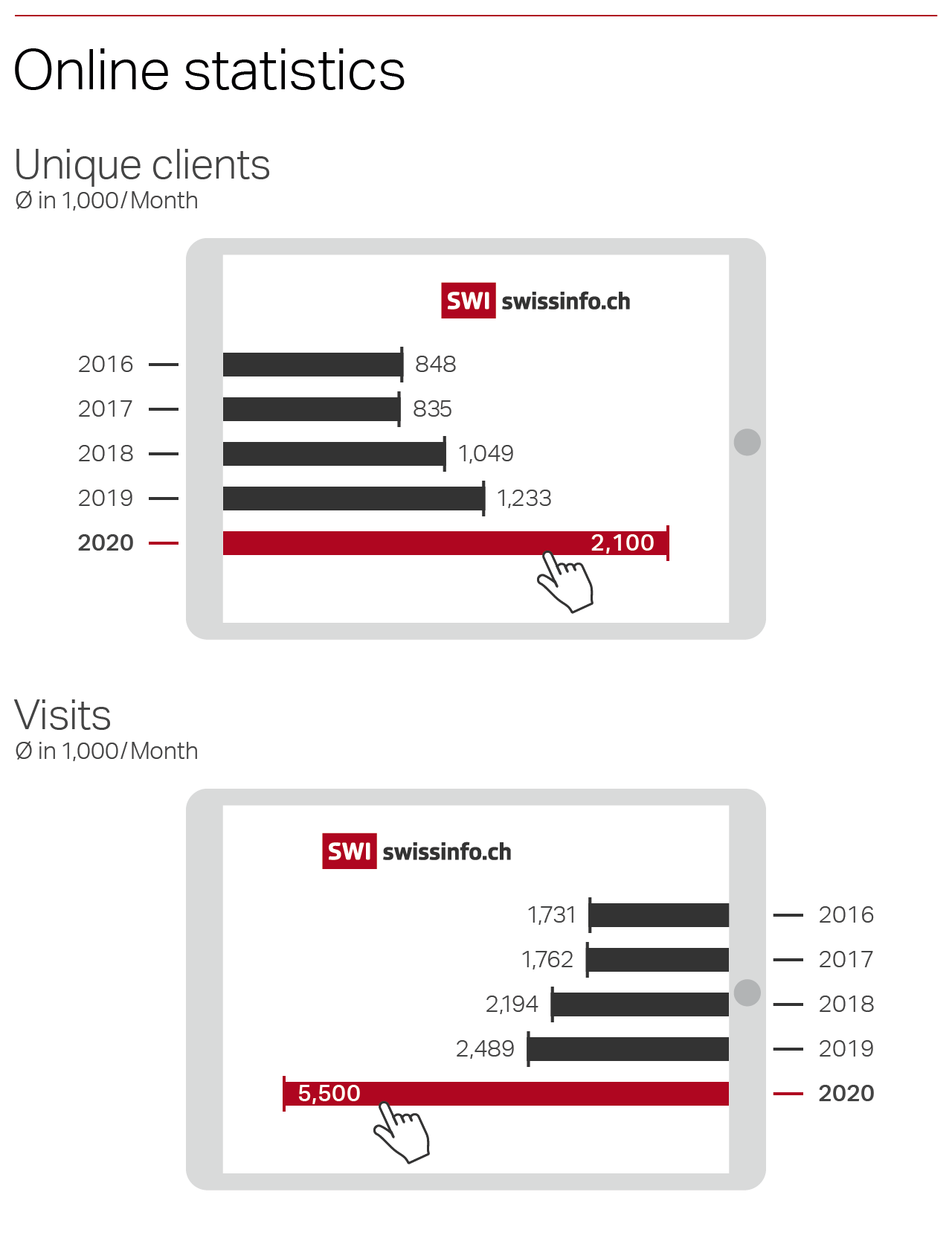
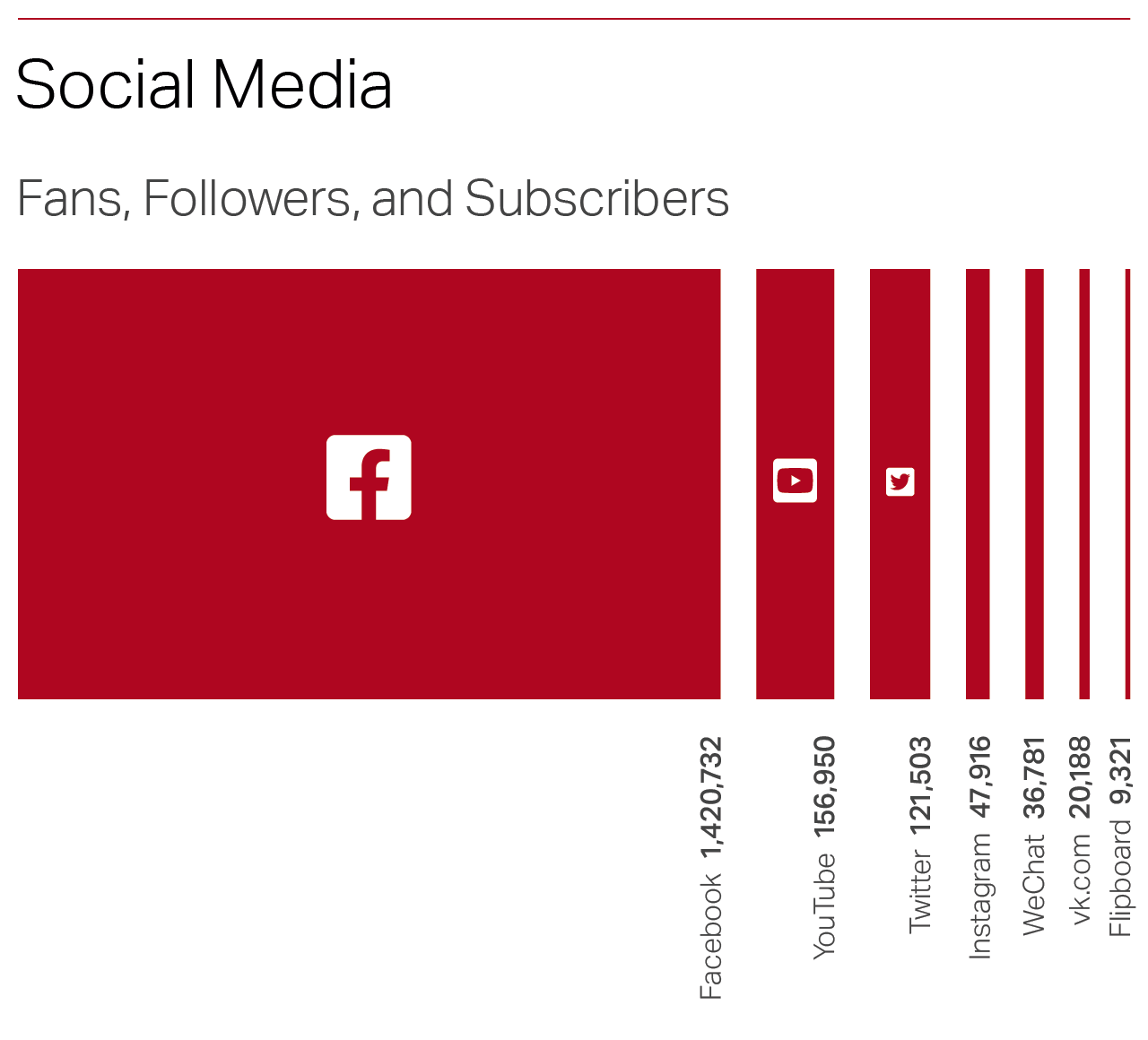
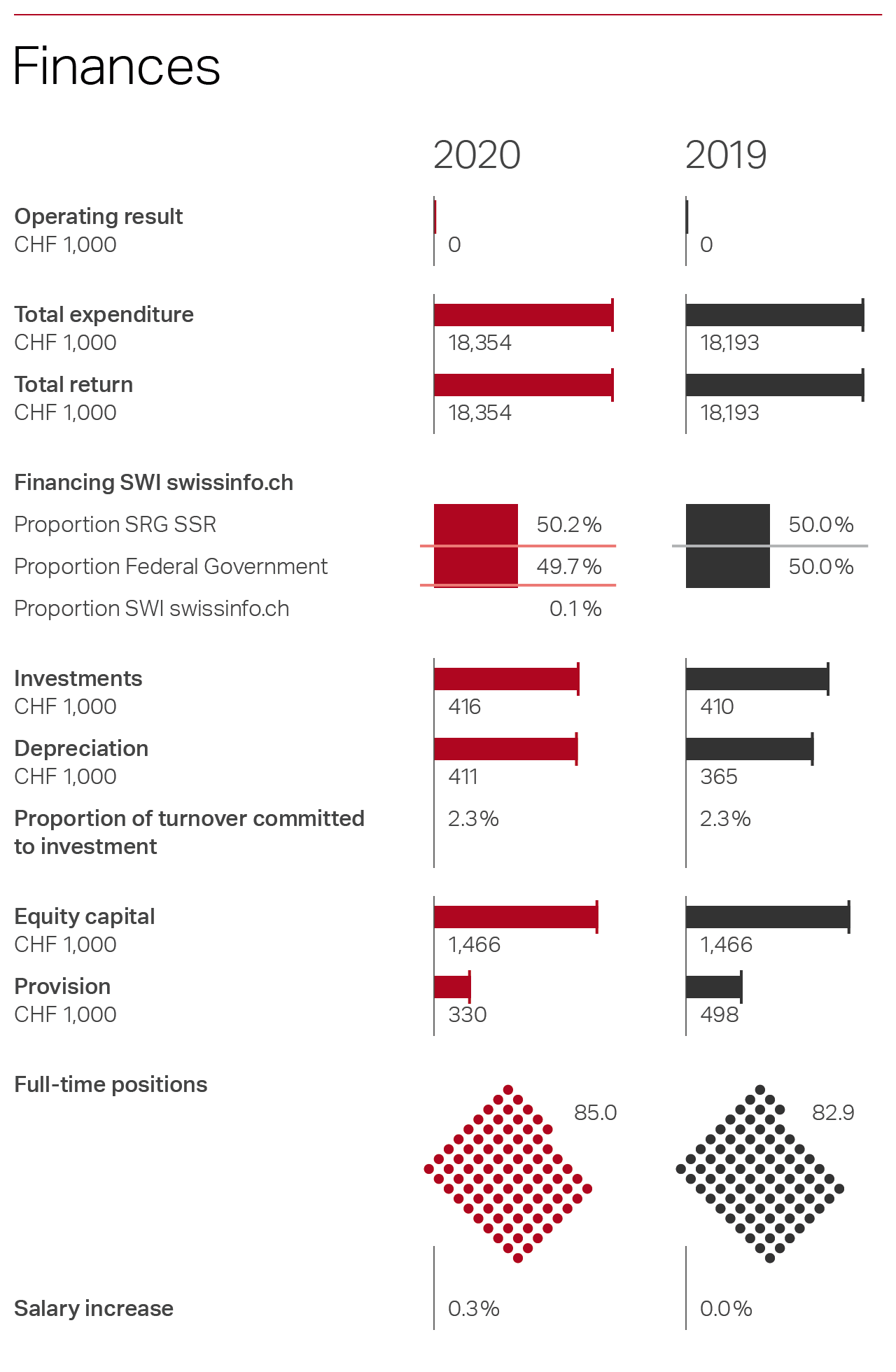
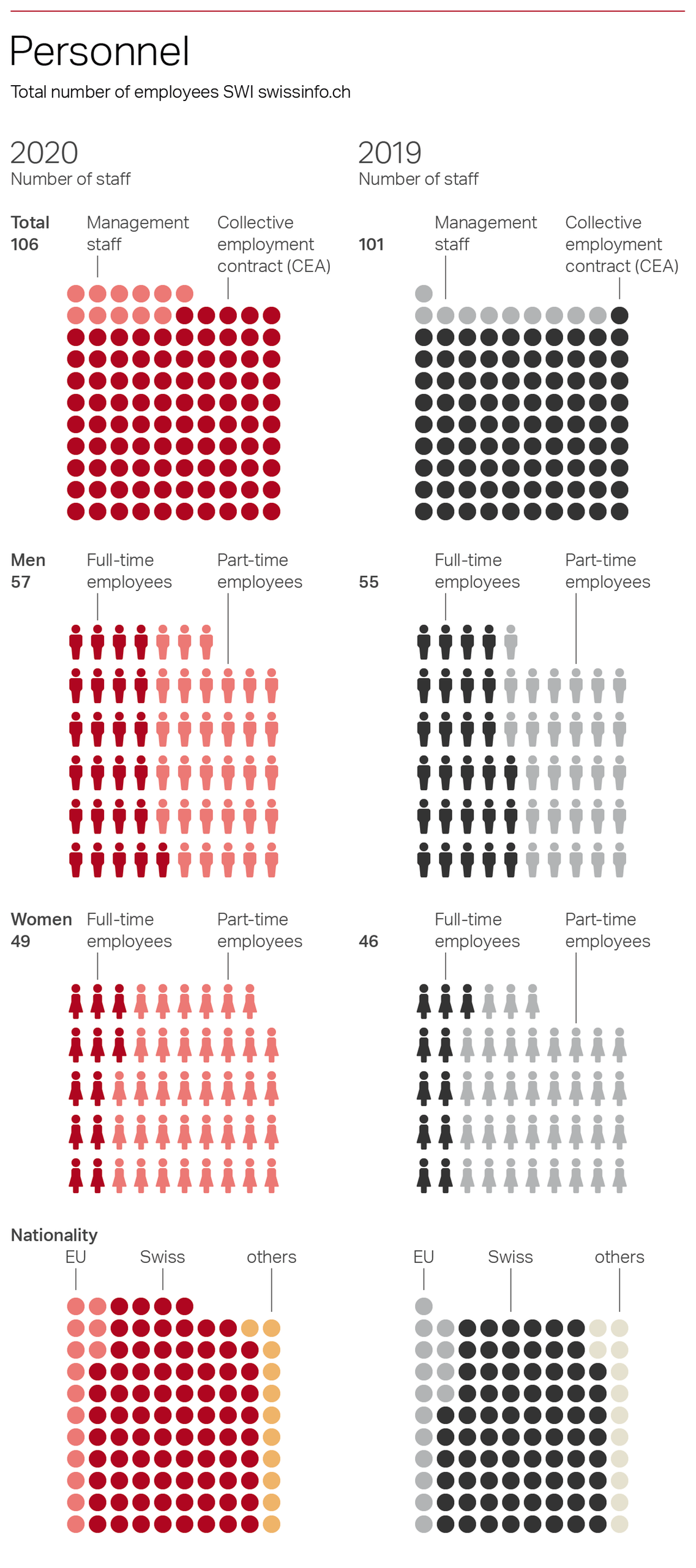
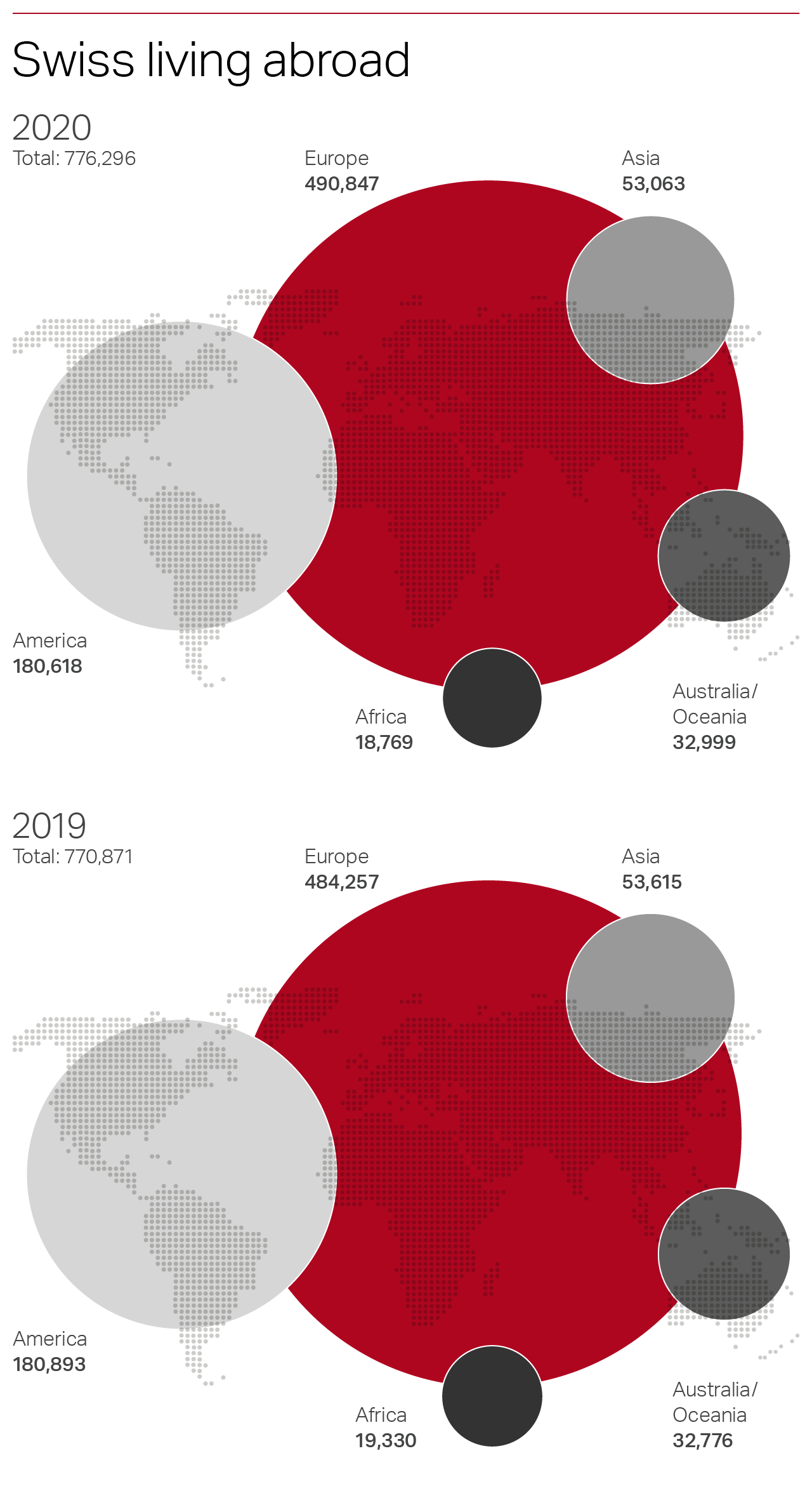

In compliance with the JTI standards
More: SWI swissinfo.ch certified by the Journalism Trust Initiative










You can find an overview of ongoing debates with our journalists here . Please join us!
If you want to start a conversation about a topic raised in this article or want to report factual errors, email us at english@swissinfo.ch.